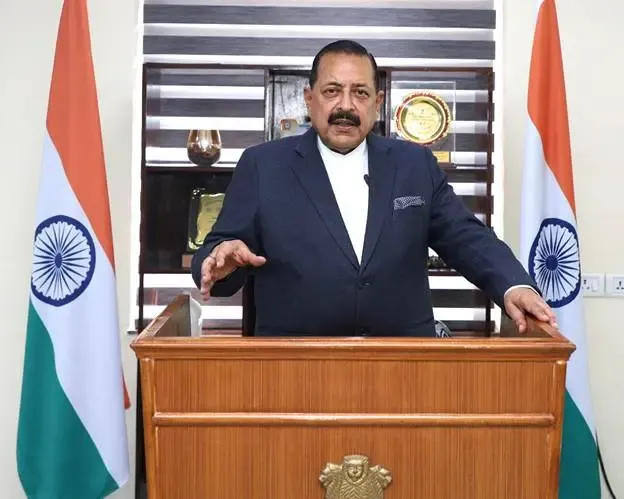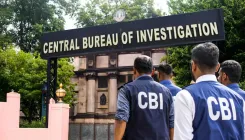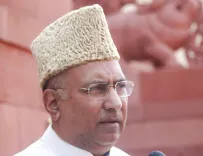Is a Dynamic Curriculum Essential for Staying Relevant in Governance?

Synopsis
Key Takeaways
- Dynamic curriculum is essential for adapting to change.
- Continuous evolution in training modules is crucial.
- Focus on emerging technologies like AI and Quantum Computing.
- Integration of traditional knowledge systems is vital.
- Grassroots initiatives strengthen democratic capacity building.
New Delhi, April 30 (NationPress) Union Minister Dr. Jitendra Singh emphasized the necessity for a dynamic curriculum amidst the rapidly evolving governance landscape.
He also highlighted the importance of ongoing evolution in public administration training modules.
This approach will address the swiftly changing needs propelled by emerging technologies such as Artificial Intelligence and Quantum Computing, he articulated while delivering the Convocation Address for the 50th Advanced Professional Programme in Public Administration (APPPA) at the Indian Institute of Public Administration (IIPA).
“What is relevant today may not hold true tomorrow. We must strive to learn every day to remain pertinent,” Singh stated.
Pointing to the government's emphasis on Mission Karmayogi and Viksit Bharat, the Minister remarked that the APPPA program has expanded beyond its conventional curriculum to include insights into aspirational districts, defense institutions, rural and urban development initiatives, as well as India's rich traditional knowledge.
He commended the course for integrating themes such as Atmanirbhar Bharat and governance reforms.
Singh also underscored the necessity for consistent learning and adaptive policymaking in response to the rapid technological advancements on the path to India@2047.
“We cannot view 2047 through the lens of 2025. Change is occurring too swiftly. We must look ahead with a forward-thinking perspective,” he conveyed.
Additionally, Singh praised IIPA's recent grassroots initiative, which commenced training programs for elected Sarpanches and Panchayati Raj representatives, describing it as a pivotal advancement in democratizing capacity building.
“IIPA has now broadened its focus from training senior civil servants to empowering grassroots representatives,” he added.






